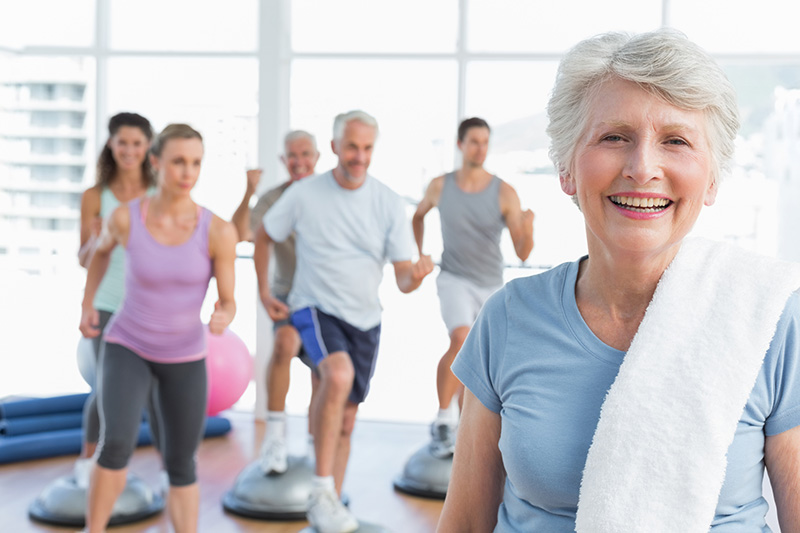Fitness in the Golden Years: The Remarkable Benefits for Seniors

As we journey through life, there's one thing that remains constant—change. The passage of time may bring with it some physical and mental challenges, but it also offers an opportunity to embrace new habits that can significantly enhance our well-being.
For seniors, staying physically active through fitness is not just an option; it's a gateway to a happier, healthier, and more fulfilling life. In this blog, we'll explore the myriad benefits of fitness for seniors and why it's never too late to embark on this life-changing journey.
1. Enhanced Physical Health
Engaging in regular fitness activities positively impacts seniors' physical health in multiple ways. Regular exercise helps to maintain a healthy weight, which in turn reduces the risk of chronic diseases like heart disease, type 2 diabetes, and hypertension.
Additionally, fitness routines that include strength training can improve bone density, reducing the risk of osteoporosis and fractures, which often concern older adults. A stronger body also means better balance and coordination, reducing the likelihood of falls and related injuries.
2. Cognitive Health and Mental Sharpness
Physical activity is not only beneficial for the body but also for the mind. Studies have shown that seniors who engage in regular exercise experience improved cognitive function and memory retention. Exercise increases blood flow to the brain, fostering the growth of new brain cells and improving overall mental sharpness. Moreover, fitness activities help reduce the risk of cognitive decline and neurodegenerative diseases like Alzheimer's, providing seniors with a better chance of maintaining their mental acuity as they age.
3. Mood Boost and Stress Reduction
Seniors who participate in fitness activities often report reduced levels of stress, anxiety, and depression. Exercise triggers the release of endorphins, commonly known as "feel-good" hormones, which can lead to an enhanced sense of well-being and happiness. Group fitness classes and social exercise settings also offer opportunities for social interaction, fostering a sense of community and reducing feelings of loneliness and isolation.
4. Increased Independence and Quality of Life
Maintaining an active lifestyle through fitness contributes to seniors' independence and overall quality of life. By improving strength, flexibility, and mobility, fitness enables older adults to perform daily activities with greater ease, preserving their sense of autonomy. Whether it's walking to the grocery store, gardening, or playing with grandchildren, seniors who prioritize fitness can fully engage in the activities they love without feeling limited by physical constraints.
5. Better Sleep Patterns
Adequate sleep is essential for overall health and well-being, but it can sometimes become more elusive with age. Engaging in regular physical activity helps regulate sleep patterns and improves sleep quality. Seniors who exercise often find it easier to fall asleep, stay asleep, and experience fewer disturbances during the night. Improved sleep not only contributes to better physical health but also positively affects cognitive function and mood.
Embracing fitness in the golden years is an investment in one's health, happiness, and longevity. The benefits of regular physical activity for seniors are vast and extend far beyond the physical realm. From enhancing overall well-being and cognitive function to fostering a sense of independence and community, fitness empowers seniors to lead vibrant and fulfilling lives.
